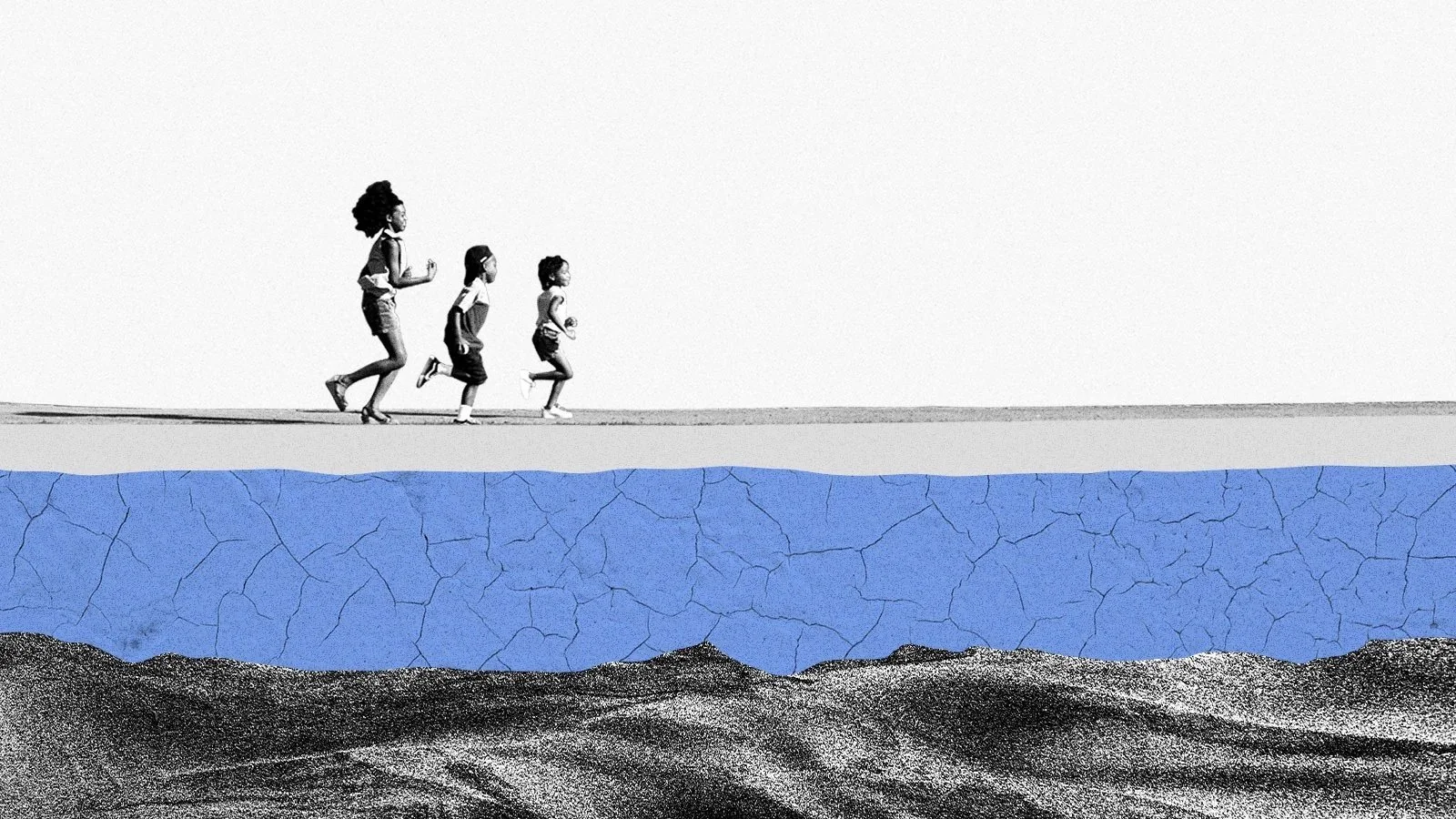"The ocean is an unforgiving place," says Susan Hunt. "But our technology is designed to operate there - it goes up and down in the waves, all day and all night." Ms Hunt is chief innovation officer for a Canadian start-up called Oneka Technologies. It has developed floating desalination systems that turn seawater into fresh water. While large, shore-based desalination plants typically require vast amounts of energy to remove the salt, Oneka's small units are powered solely by the movement of the waves.
Canada’s natural resources: Supplying the world
Yet, Canada’s important task is to move from a supplier country with restricted access to global energy markets, to an energy and resources powerhouse known worldwide as the market leader in responsibly produced oil, natural gas, uranium, wind, hydropower, lumber, and agriculture. It will take continued hard work but make no mistake; we have most of the pieces already in place. We’re missing the policy framework that will take us from a restricted supplier to a market leader.
Living Lakes Canada water monitoring indicates climate impact
The Canadian Columbia Basin, which supplies fresh water to millions of people in Canada and the United States, is under threat due to climate change, according to Living Lakes Canada (LLC). LLC is a registered charity affiliated with the German Global Nature Fund’s Living Lakes International, a global network of organizations that work to enhance, protect, restore and rehabilitate freshwater areas around the globe.
Businessmen float idea of shipping Greenlandic water to Iqaluit
Two Toronto entrepreneurs say they have a solution to Iqaluit’s water supply needs: They’ll ship it in from Greenland. Fred Grootarz and Mark Albert want to use tankers to transport the water to Iqaluit’s port, where it would be stored year-round in electrically heated tanks. Albert calls the plan “a perfect fit” for Iqaluit.
Agro-waste could be the solution to a cleaner water supply in Sask., U of S researcher says
Securing a safe water supply for Earth’s growing population is a global goal that is reflected in the long-term sustainability plans of almost every nation. Creatively solving this problem is another matter altogether. University of Saskatchewan graduate student Bernd Steiger is using chemistry expertise and Saskatchewan-based waste to soak up contaminants in fresh water reserves. “This province can be considered the breadbasket of Canada with its large agricultural sector,” Steiger noted. “Agro-waste (such as the inedible part of a plant, for example) is a low-value byproduct of agriculture, and turning this waste material into specialty adsorbents can aide in generating additional wealth for the Sask. agro-economy, while also serving to address water security and sustainability goals.” Steiger’s work uses several principles of what is referred to as ‘green chemistry’ — a type of chemistry that avoids a need for conventional chemical or energy inputs.
Protecting Saskatchewan’s waterways and wetlands
Saskatchewan is known for its many beautiful lakes and abundance of fresh water and wetlands. Helping to protect the province’s natural resource of water is the Saskatchewan Association of Watersheds. The association’s executive director, Bridget Andrews, explains the work they do and how the public can help protect Saskatchewan’s waterways.
Shoemaker voices displeasure with federal government decision on Canada Water Agency
Mayor Matthew Shoemaker said he’s voiced his disappointment with the federal government’s decision not to include Sault Ste. Marie in the new Canada Water Agency. Shoemaker was meeting with federal Transport Minister Omar Alghabra, during his recent visit to Sault Ste. Marie. Alghabra met with a number of stakeholders from area industries to discuss the federal government’s Green Energy Tax Credit program.
It’s not just oceans rising. It’s groundwater, too
Beneath our feet there is an invisible ocean. Within the cracks of rock slabs, sand and soil, this water sinks, swells and flows — sometimes just a few feet under the surface, sometimes 30,000 feet below. This system of groundwater provides a vital supply for drinking and irrigation, and feeds into rivers, lakes, and wetlands. Across the globe, it contains 100 times as much fresh water than all the world’s rivers and lakes combined.
Federal 2023 budget important step for fresh water: WWF-Canada
WWF-Canada welcomes important investments in the 2023 federal budget to maintain momentum toward protecting and restoring 30 per cent of land and waters by 2030, including a new Canada Water Agency; monitoring, assessing and restoring key freshwater ecosystems; protection of endangered whales and their habitats; and ongoing support for species at risk.
World Water Day marked with funding announcement for research and protection of our most precious natural resource: fresh water
We are taking advantage of World Water Day to support our ambitious climate change actions that keep our air and our fresh water clean. Already, the Government of Canada has committed to create a Canadian Water Agency to protect this natural resource, which provides us with clean drinking water, transportation, energy, and economic opportunities, as well as recreation. Parliamentary Secretary Terry Duguid is also attending the United Nations Water 2023 Conference in New York this week as Canada's representative to discuss the mid-term review of the goals of the International Decade for Action on Water for Sustainable Development, 2018–2028.
Tensions high on Port au Port Peninsula over wind-hydrogen megaproject
Depending on who you talk to on the Port au Port Peninsula, the region is either on the brink of an economic transformation or walking an environmental tightrope. Forty-five per cent of residents in the area drew employment insurance in 2019. But a company formed just a few months ago, World Energy GH2, promises a revolutionary wind-hydrogen project it says will bring hundreds of jobs and millions in revenue. The hiccup? That plan depends on building 164 turbines, each 200 metres tall, in an area about the size of the City of St. John's.
Fresh water: Quebec to spend $150M annually to protect 'blue gold'
Quebec plans to “significantly increase” the fees charged to companies that extract fresh water in the province, Premier François Legault said Thursday. Speaking at the United Nations COP15 biodiversity conference in Montreal, the premier announced his Coalition Avenir Québec government will introduce a bill early in 2023 on protecting water. Describing water as “blue gold,” Legault said 25 per cent of the planet’s fresh water runs through the St. Lawrence River.
New city council reaffirms interest in Canada Water Agency
One of the first actions of our 2022-2026 city council was to toast Sault Ste. Marie's bid to become the home of the new Canada Water Agency. Councillors gave unanimous support Monday night to a resolution from Ward 5 Coun. Corey Gardi and Ward 2's Luke Dufour, confirming that the Sault is still the "superior" choice for the new agency, intended to work with provinces, territories, Indigenous communities, local authorities, scientists, and others to keep Canada's fresh water safe, clean, and well-managed. "We're in the process of arranging for a couple of meetings with members of the federal government," Gardi said. "The task force has really stepped up its work over the course of the last couple of weeks." "It seems that the decision is imminent," Gardi said.
Short on fresh water, North Africa turns to desalination for water security
Low water levels reveal dry, crusty banks of the Nile River. As one of the longest rivers in the world is threatened by both overuse and climate change, so is the water security of the millions of people who rely on it for daily use in Sudan and Egypt. As the host country of the COP27 climate conference, Egypt kept water security front and centre. Monday was "water day" at the summit, and desalination was a hot topic.
CANADA: Canadian golf courses working to reduce ecological impact
Golf's origins date back hundreds of years to rural Scotland where the natural features of the land near Edinburgh created the hazards that golfers had to play around and sheep kept the grass well manicured. But the game has spread around the world in the ensuing centuries with different environments forcing the technology used to maintain golf courses to evolve well past sheep. Golf courses have become divisive with some environmentalists criticizing their use of pesticides and fresh water, but their defenders argue that they can be oases that give cities and suburbs important green space.
Research from UBC Okanagan suggest tire particles impact fresh water
If you have ever been curious as to what happens to the rubber tread that wears off of a vehicle's tires, then you are in luck. Modelling by a team of researchers at the UBC Okanagan has discovered that an increasing amount of microplastics from tires and roadways are ending up in lakes and streams. From the university's School of Engineering, researchers have developed a framework for examining potential contamination that originates from the use of vehicles on roads and highways.
Metro Vancouver's last remaining glacier is disappearing fast Social Sharing
Metro Vancouver's last surviving glacier, a source of local fresh water, will disappear in less than 30 years, scientists say. Scientists say climate change is accelerating the demise of the Coquitlam Glacier. The ice pack, located 40 kilometres north of Vancouver, sits on a mountain more than 1,400 metres high. During the warmer months, runoff from what's left of the glacier provides about two percent of the water in the Coquitlam Reservoir. Although not a significant source of water, for scientists surveying its decline, the glacier's disappearing act is a symptom of the stress climate change is putting on local sources of fresh water.
Canada supports community-based action to improve and protect fresh water in British Columbia
A clean freshwater supply is essential to the well-being of Canadians, the health and sustainability of the environment, and the economy. Fresh water from lakes, rivers, and groundwater is critical for the survival of all living organisms. Today, the Honourable Steven Guilbeault, Minister of Environment and Climate Change, alongside a number of environmental organizations at John Hendry Park in Vancouver announced over $1 million in funding to support twelve new projects in British Columbia over the next four years under the EcoAction Community Funding Program.
Public Education Campaign on Blue-green Algae
A new public education campaign will help Nova Scotians become more aware of blue-green algae when enjoying the province’s outdoors with the arrival of warmer weather. Cyanobacteria, or blue-green algae, are naturally occurring in fresh water like lakes, ponds, rivers and streams. They can flourish in water high in nutrients, especially during hot, dry conditions. The bacteria can be harmful to people and fatal for animals, so it is important that Nova Scotians know what to look for and how to protect themselves, their families and pets.
Great Lakes tributary rivers play important role in bringing PFAS to the drinking water source of millions
The world's largest source of fresh water, the Great Lakes, provides drinking water to more than 40 million people in the U.S. and Canada. In the first study of its kind, researchers at the University of Wisconsin-Madison College of Engineering have demonstrated that tributary rivers feeding Lake Michigan play an important role in bringing the human-made group of chemicals known as per- and polyfluoroalkyl substances (PFAS) to the Great Lakes system.





















